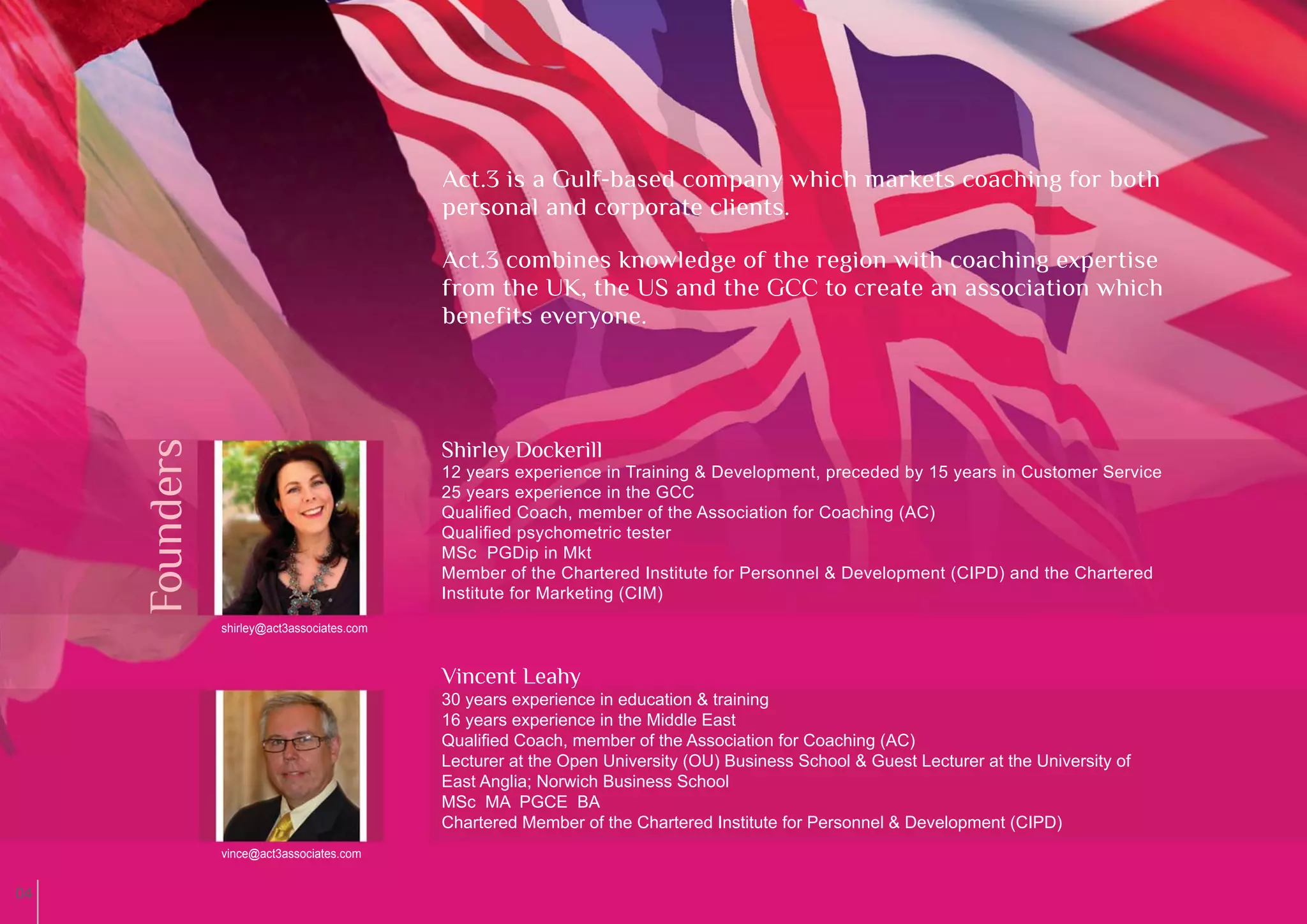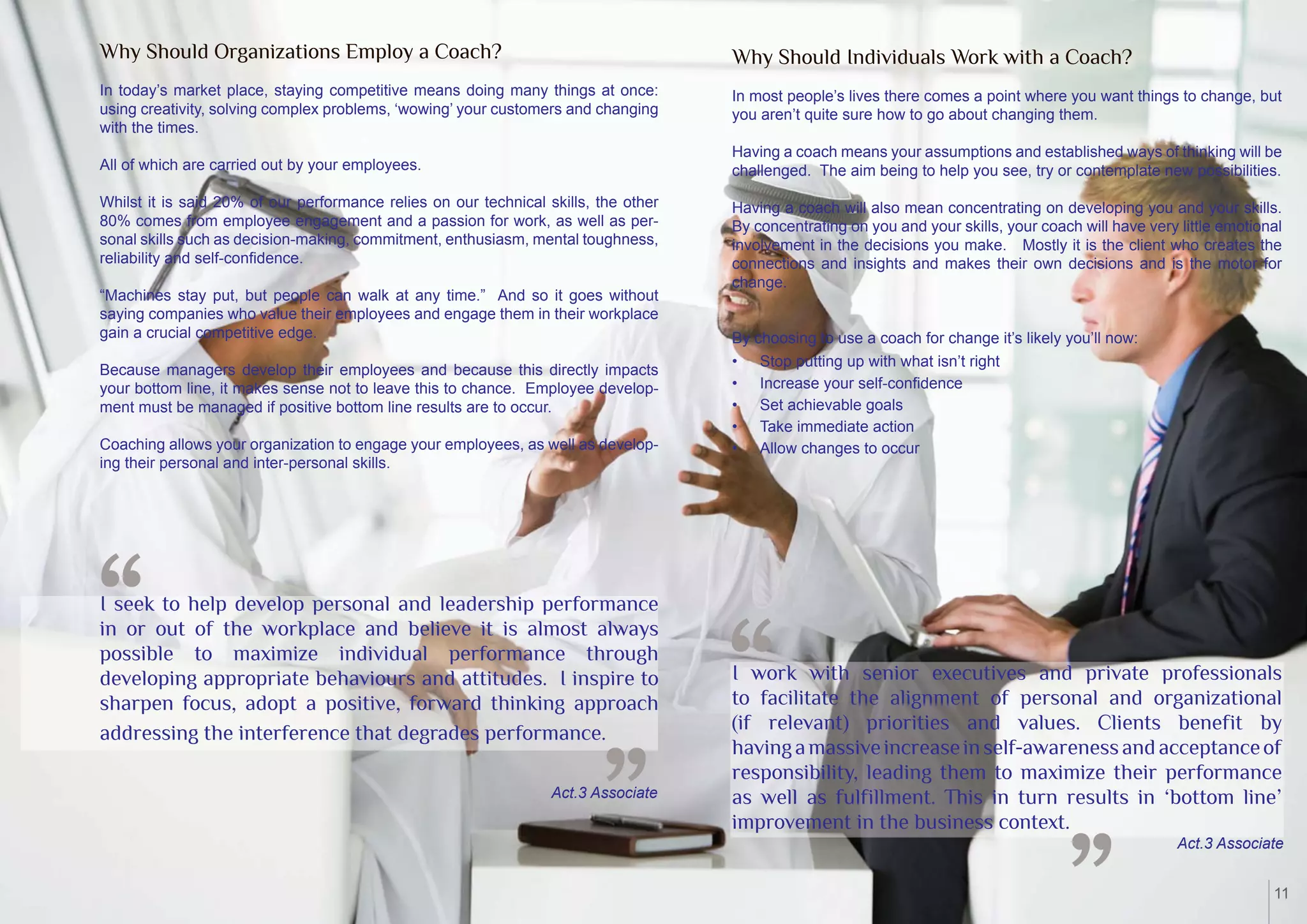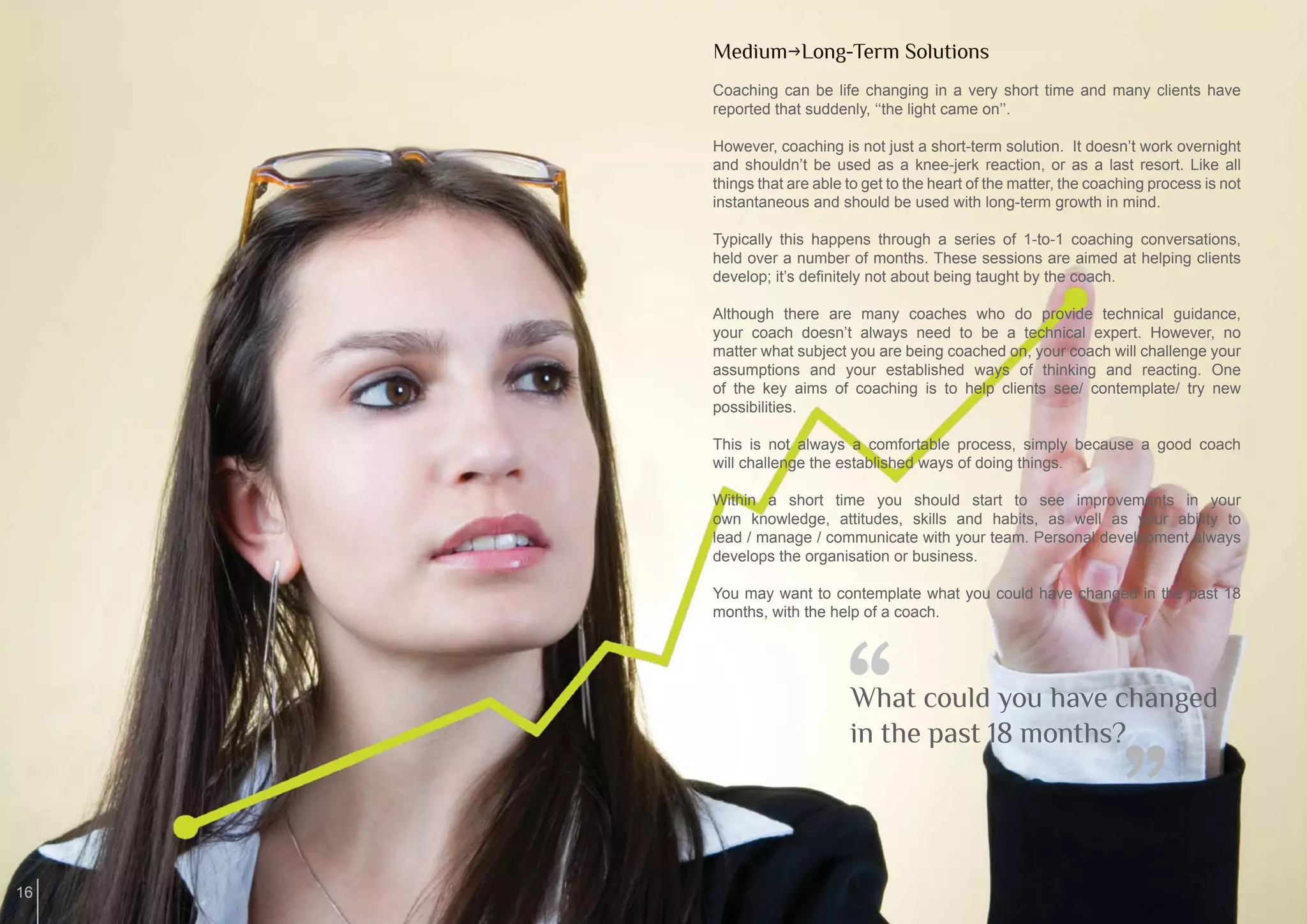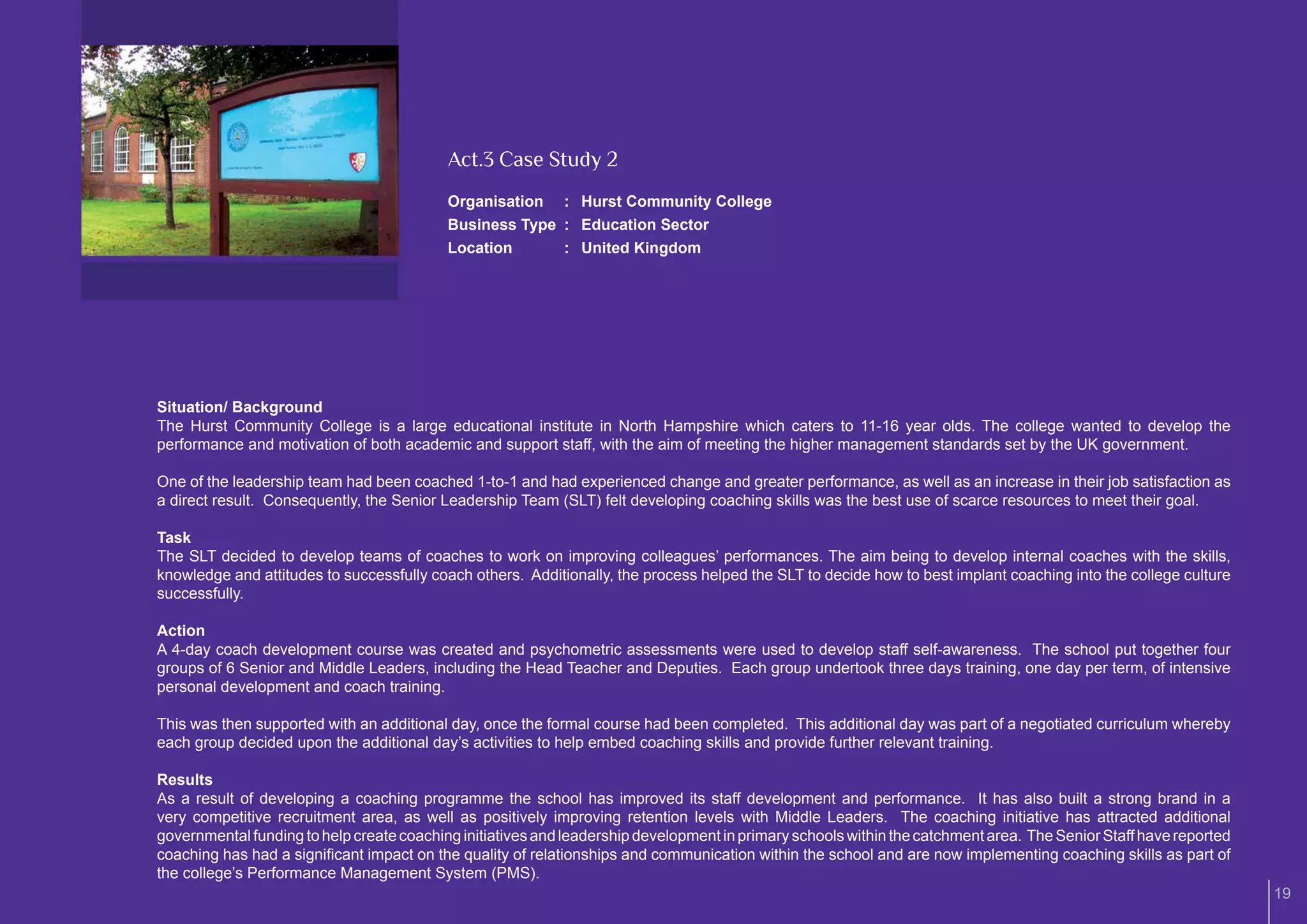Act.3 is a Gulf-based coaching company that offers both personal and corporate coaching services. It was founded by Shirley Dockerill and Vincent Leahy, who have extensive experience in training, education, and coaching. Act.3 combines coaching expertise from the UK, US and GCC. The company markets 10 types of coaching, including behavioral/performance coaching, executive coaching, cross-cultural coaching, and various forms of personal coaching. Act.3 aims to provide measurable returns and individualized solutions tailored to each client's specific needs and goals.























